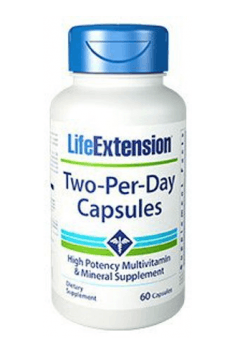When it comes to forging a lean muscular body, total calories, protein, carbohydrates, and fats get the most the attention. It’s for good reason, too, since trying to sculpt a noteworthy physique for beach season without being mindful of what you stuff in your tummy.
Care the details!
However, oftentimes it’s what most would consider the “little things” such as sleep, endocrine-disrupting chemical loads, and micronutrient statuses that can be the veritable little hinges that swing big doors.
The most overlooked of this group are the micronutrients: vitamins and minerals. Let’s look more closely at two minerals, zinc and magnesium, and the role they play in your physique development.
Minerals and their function
Minerals play very importantly (yet often overlooked) roles in your body as they serve as cofactors or pieces to enzymes and compounds that carry out important functions.

Take iron, one of the most well-known minerals for example. The iron sits inside haemoglobin serving as the molecular docking station that holds onto oxygen and keeps the entire haemoglobin compound together. Without iron, this whole system would fall apart. This is typical for all minerals in your body – they do the dirty work for essential functions.
Magnesium is required for over 300 different reactions and is the fourth most abundant mineral in the body. Magnesium is a physiological rock star, playing a role in regulating blood pressure, blood sugar, and energy metabolism. Nuts, seeds, spinach, and certain whole grains are all good dietary sources of magnesium.
Magnesium supplements come in all different types, however, avoid supplements containing magnesium oxide. While they contain the highest per cent of elemental magnesium, research shows they’re absorbed the poorest.
Zinc is an essential mineral found mainly in animal protein sources, with oysters being the best source. It’s required for the proper functioning of 100 different enzymes. These enzymes play a role in a wide variety of systems in the body ranging from protein and DNA doesn’t readily store zinc so maintaining a consistent intake is required to maintain the needed levels in your body.
Mineral depletion and repletion
Despite the essential role of minerals, the importance of maintaining high mineral levels in our foods stuff has been essentially ignored. Some research has estimated that the mineral content of the food found in supermarkets is 40% lower than that of 50 years ago, making it harder to get what we need to make sure our bodies are running on all cylinders.
Adding back zinc and magnesium to your diet can help fight the depletion effects due to lack of dietary intake and exercise (another main cause of mineral depletion). Blood magnesium levels can decrease as much as 5% from just walking on a treadmill for 90 minutes at 3 miles per hour.
Research shows us some interesting benefits of supplementing with zinc and magnesium to replete our bodies:
- Magnesium supplementation can improve cardiovascular function during exercise.
- Zinc supplementation can prevent exercise-induced decreases in thyroid hormone and testosterone levels in both sedentary men and elite athletes.
Simple mineral testing
When dosing individual vitamins and minerals I always like to have an actual reason to do so other than X vitamin is good for you so I’ll just take more. The best way to do this is through testing your mineral levels, although this isn’t the easiest or most conventional approach.






